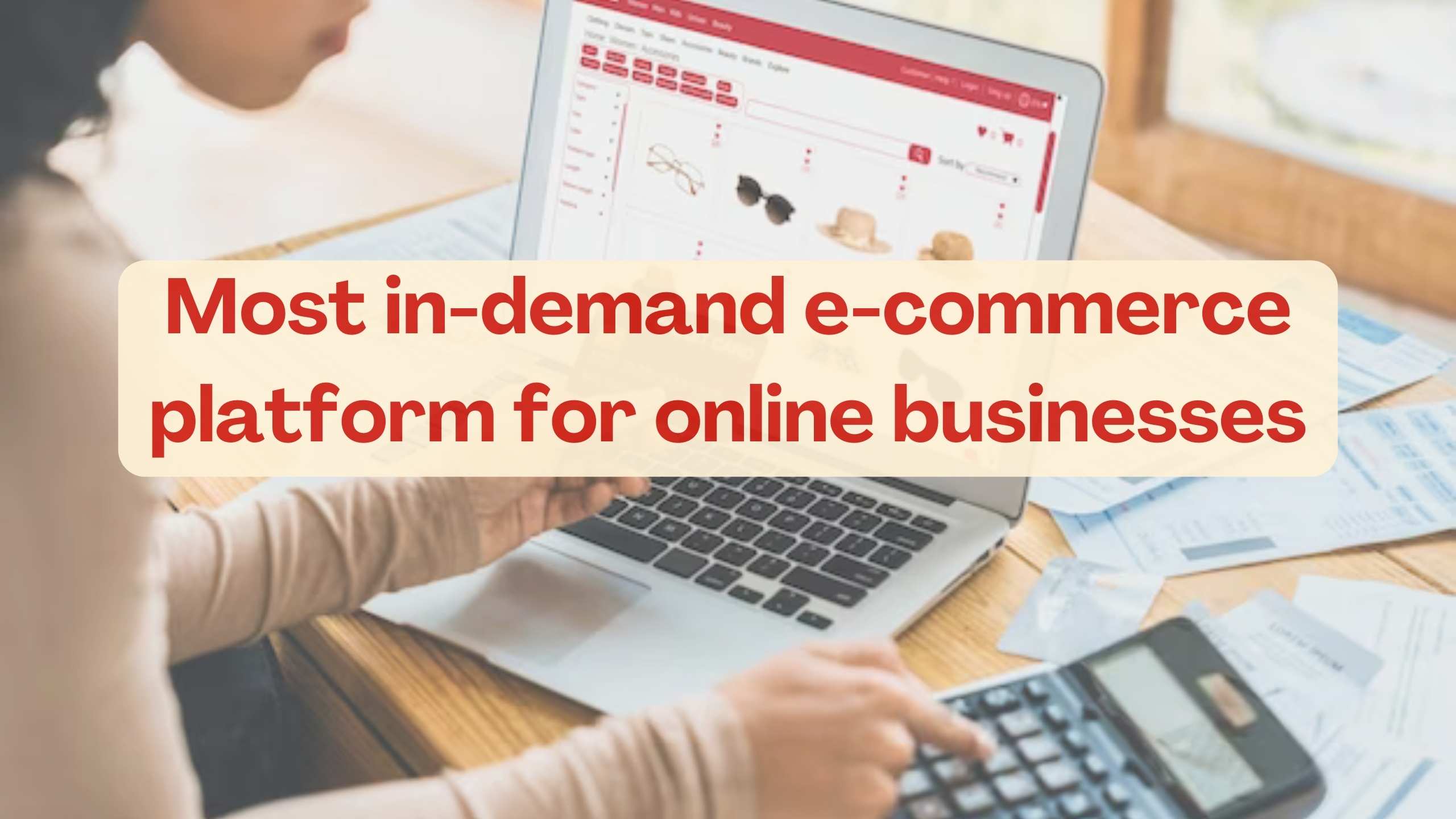Most in-demand e-commerce platform for online businesses


The Evolution of E-commerce Platforms: Unveiling the Most In-Demand Choices for Online Businesses in 2024
The e-commerce landscape is ever-evolving, with 2024 bringing forth new possibilities for online entrepreneurs. In the quest for the most in-demand e-commerce platforms, businesses must navigate a sea of options. This comprehensive guide not only identifies the leading e-commerce platforms but also delves into the intricacies of each, offering a roadmap for businesses to thrive in the digital marketplace.
Understanding the E-commerce Landscape
1. Shopify: The Powerhouse of Simplicity and Versatility
- Shopify has emerged as a dominant force, known for its user-friendly interface and adaptability. From startups to established enterprises, businesses appreciate Shopify’s scalability and robust feature set.
- Features: Shopify boasts a range of features, including customizable templates, secure payment options, and an app ecosystem that enhances functionality.
- Why It’s In-Demand: The platform’s simplicity, coupled with its ability to support a variety of business sizes and industries, has contributed to its widespread popularity.
2. WooCommerce: Seamlessly Integrating with WordPress
- WooCommerce, a WordPress plugin, empowers businesses by seamlessly integrating e-commerce capabilities into their existing WordPress websites.
- Features: Its open-source nature allows extensive customization, making it an attractive choice for businesses seeking a tailored online presence.
- Why It’s In-Demand: With a vast community of developers and a user-friendly interface, WooCommerce is a preferred choice for businesses leveraging the WordPress platform.
3. BigCommerce: Simplifying E-commerce for All Sizes
- BigCommerce stands out for its ease of use and scalability, making it suitable for businesses of all sizes.
- Features: The platform offers built-in features such as responsive templates, multi-channel selling, and marketing tools to streamline the e-commerce journey.
- Why It’s In-Demand: Its user-friendly design and robust built-in features cater to both beginners and seasoned entrepreneurs.
4. Magento: Catering to Enterprise-Level Customization
- Magento is renowned for its extensive customization capabilities, making it an ideal choice for large enterprises and businesses with complex needs.
- Features: The platform provides advanced features like multi-store management, flexible product display, and a vibrant extension marketplace.
- Why It’s In-Demand: Businesses seeking unparalleled customization and scalability often turn to Magento for a tailored e-commerce solution.
5. Square Online: Integrating Payment Solutions Seamlessly
- Square Online seamlessly integrates with Square’s payment processing solutions, providing a cohesive platform for businesses.
- Features: It offers intuitive design tools, inventory management, and order fulfillment, creating a comprehensive e-commerce solution.
- Why It’s In-Demand: Businesses leveraging Square’s ecosystem find Square Online to be a natural extension, simplifying the online selling process.
Making the Right Choice for Your Business
The decision on the most suitable e-commerce platform depends on various factors, including business size, budget, and specific requirements. Careful consideration of these aspects will ensure you choose a platform that aligns seamlessly with your business goals and objectives.
Embarking on your e-commerce journey in 2024 requires more than just selecting the right platform—it involves optimizing your entire SaaS stack. Subscribed.FYI, designed for freelancers, agencies, and small teams, serves as a hub for managing SaaS subscriptions effectively.





